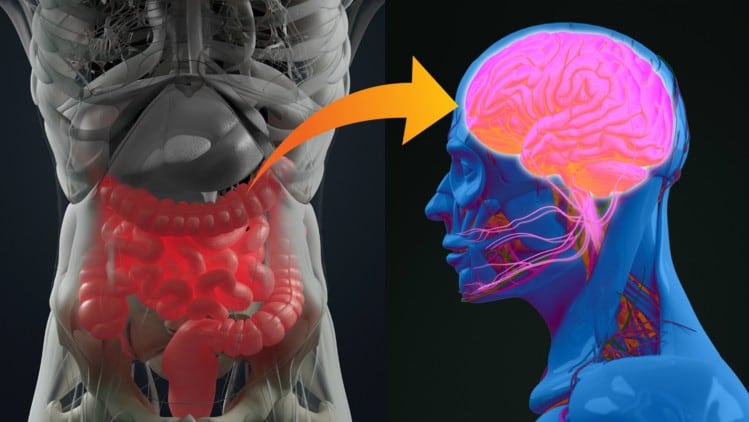The initial randomised, double-blind, placebo-controlled study enrolled 80 healthy older adults with suspected mild cognitive impairment (MCI) who were given either the probiotic (2×1010 CFU) or placebo for 16 weeks.
All subjects were of a healthy weight and had normal fasting glucose levels.
Cognitive functions were then assessed by Repeatable Battery for the Assessment of Neuropsychological Status (RBANS) test and the Japanese version of the MCI Screen (JMCIS) test before and after the study. Blood samples were also collected for safety evaluation.
The probiotic group saw a significant improvement in several memory parameters such as immediate memory, delayed memory, and visuospatial/constructional memory.
Blood markers study
So, in the current study, researchers further analysed the blood samples and now found that blood parameters changed with the improvement of cognitive function.
Specifically, the probiotic group observed a reduction in haemoglobin A1c (HbA1C) levels from baseline, but not in the placebo group, indicating that it might be associated with improved cognitive in the probiotic group.
In addition, serum albumin levels also improved in the probiotic group, but not in the placebo group, suggesting its potential to slow progression of MCI symptoms.
These data support the mechanism of anti-inflammation in improving cognition by the probiotic strain.
There were no significant changes from baseline for all other blood markers.
Findings were published in the Journal of Alzheimer’s Disease.
Haemoglobin A1c (HbA1C) is a marker that reflects average blood glucose level, and is typically used to diagnose people at risk of developing Type 2 diabetes.
According to the National Glycohemoglobin Standardization Program, the usual range of HbA1c for people without diabetes is < 5.5%, 5.6% to < 6.4% reflects an increased risk of developing diabetes, while levels of 6.5% or higher indicate diabetes and the greater risk of developing diabetes-related complications in Japan.
Some studies have also found an association between higher serum HbA1c levels and the development of inflammation-related dementia such as Alzheimer’s disease (AD).
It is known that AD brains have declining uptake of blood glucose, which results in a decrease in memory and cognitive performance.
While several indications have suggested a link between dementia, glucose metabolism, and inflammation, no precise treatment has been identified that could prevent or reverse the course of those syndromes, including MCI.
For albumin, previous studies have reported association of lower albumin levels to a higher risk of developing MCI and AD.
“Given the association between HbA1c and the risk of developing dementia, we were interested in a follow-up post-study analysis to see if we could find any correlation of this marker or other safety biomarkers with memory improvement of the study participants that received either B. breve MCC1274 daily or a placebo for 16 weeks,” researchers said.
Recommendations for future studies
From the first study, it showed that a 16-week supplementation of the probiotic B. breve MCC1274 was safe and effective at improving the participants’ cognitive functions as assessed by RBANS and JMCIS
Further analysis of the safety blood parameters in the second study revealed that lowering of HbA1c is associated with improved cognitive functions in physically healthy subjects with suspected MCI, suggesting the possible mechanism of the effect of probiotics on memory and at reducing inflammation.
“Our findings also support the hypothesis that HbA1c lowering is a predictor for cognitive impairment amelioration in a non-diabetic healthy population,” the researchers wrote.
While the current study involved healthy individuals with no signs of diabetes, researchers said there was a possibility that participants may have early signs of insulin resistance.
“We will address this limitation in future studies by conducting a glucose tolerance test that would reveal any early signs of insulin resistance. This assessment could help us understand if B. breve MCC1274 consumption could improve mitochondrial activity linked to impaired brain insulin signaling and inflammation, a deficiency observed in a healthy elderly population and people with dementia previously.”
In addition, MCI subjects tend to show higher levels of C-reactive protein (CRP) concentration, an inflammation marker.
“While our study did not measure CRP levels, previous preclinical studies with B. breve MCC1274 clearly showed that this probiotic has anti-inflammatory properties and hence, we speculate that its positive effect in MCI subjects is linked to a reduction of brain inflammation and reflects the relation with HbA1c changes.”
Further clinical studies using several other markers of inflammation are needed to confirm this result.
Source: Journal of Alzheimer’s Disease
DOI: 10.3233/JAD-201488
“Association of Plasma Hemoglobin A1c with Improvement of Cognitive Functions by Probiotic Bifidobacterium breve Supplementation in Healthy Adults with Mild Cognitive Impairment”
Authors: Bernier, Francois, et al.
We’ll be shining the spotlight on Healthy Ageing: Mobility & Cognitive Health in our Growth Asia 2021 interactive broadcast series, featuring expert insights from a host of big-name brands and world-renowned experts. Watch for free here.




